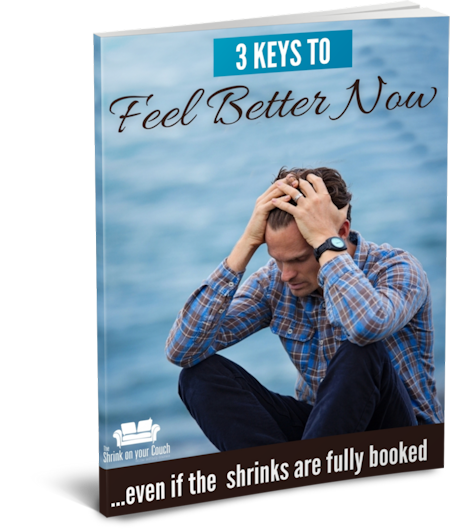I happened upon such an interesting concept yesterday.
“Behavioural activation”, as a treatment for (mild) depression.
As a standalone treatment for (mild) depression.
“What is behavioural activation?”, you ask.
Basically, doing things to feel better.
Simple as that.
In my best clinical language, “what the actual fu**?”.
Horribly deceptive in its simplicity.
But such a pregnant-with-possibility idea. Especially in this post-covid era with its tsunami of mental health crises.
There are simply too few psychologists and counsellors available to service this surge.
Access to psychotherapy is not even about financial privilege anymore, as was the primary constraint in the past.
Now, even if you can afford good, effective, medium-to-long-term service, finding a therapist with capacity is an astounding feat.
So… behavioural activation.
The thinking is that, when we are feeling well, we’ll likely be enthusiastic participants in our lives. We’ll be interacting socially, reading up on what interests us, investing in our careers and personal development, and doing whatever we personally experience as enjoyable and meaningful.
This doing creates positive feeling, causing more doing. And so, a self-sustaining loop of goodwill and emotional buoyancy exists.
When something critical happens in a person’s life (externally – trauma, divorce/grief/financial hardship, etc., or internally – shift in hormones, neuro-chemicals, mood, general health), they may well gently-then-swiftly abandon their activities.
There may be less motivation and enthusiasm for previously loved tasks, causing a spiral into inertia.
Disconnection from social, physical, and developmental activity results in less benefit from these activities. The (do things) to (feel good) feedback loop is severed. There’s less ‘feeling good’ because of less engagement in life. And so, a depressed mood kicks in, causing even less inclination to vitally engage in the business of living.
I Tested This. It Has Merit.
I particularly ‘get’ this because I inadvertently tested it. I haven’t felt fantastic in recent weeks. I’ve had a low mood. Less energy and enthusiasm than usual. I’ve been exhausted. I’ve felt much of my days to be frustrating. And, by Sunday, I wrote in my journal, “Am I actually just a bit depressed?”.
But “yes” just didn’t resonate, nor would it have felt like a good enough answer.
And so, I rather thought about ‘the pillars of mental health’.
You’ve likely heard the adage, “Before you diagnose yourself with depression or low self-esteem, make sure you’re not, in fact, just surrounded by assholes”. Well, a different version of this could be, “Before you diagnose yourself with depression or low self-esteem, make sure you’re doing all the responsible, adulty things that cumulatively foster mental health and wellness”.
I.e.: take some responsibility for your mental health, to whatever extent possible.
My thoughts turned to the “75-HARD” challenge, popular on social media. For the uninitiated, this is a 75-day encounter where the participant commits to gruelling rigour and routine, including 2 beast-like workouts per day, zero booze, a strict diet, and daily reading. Break any principle and your challenge resets and restarts.
I find the whole notion masochistic and punitive.
So that’s a “no”.
But many people have developed their own “75-SOFT” alternative. And I jotted down a few activities that I could buy into, in this vein. My purpose in this was the self-loving, self-nurturing intention of feeling better through focus on tasks I find meaningful, and actions I derive benefit from.
My list included:
- Daily exercise, with one day per week of active rest. Because I have come to really value physical fitness, and lean muscle mass.
- Daily practice administration – invoicing, receipting, case notes and email responses. Because I want to be a good custodian of my business, and because I value free time on weekends.
- At least one chapter towards a professional certification I am working towards. Because I know that bit-by-bit is the only way I’ll achieve this milestone, and I’m committed to servicing my clients impeccably with the knowledge I’m gaining.
- At least 15 minutes of Farsi tuition, because I want to be a person who is ultimately fluent in my husband’s mother tongue.
- 1 page of journaling, per day, because I so thoroughly value thought-work, and so fully believe that most of what we think isn’t strictly true – and that challenging thoughts brings massive growth and abundance.
- A commitment to prepare, market and present two workshops, as “The Shrink On Your Couch”, for my bariatric and relationship audiences. Because I believe in this platform and choose to prioritise it.
The cruxes here are two-fold, and in summary I quote from a chapter on Behavioural Activation in the Handbook of Cognitive Behavioural Therapy: Overview and Approaches, edited by A.Wenzel:
“Behavioural activation rationale suggests that depression is reduced when a person re-engages in their life through value-based and meaningful activities in response to adversity and despair”, and, further, that “The task of determining what is “value based” and “meaningful” is individual to each person.
I, personally, feel profoundly better than I did while journaling on Sunday, and I challenge you to try it.
Your Turn:
Make a list of 3-5 habits (regular practices) or activities (desirable, standalone events), and schedule them into your days and weeks ahead. Make sure they are things that you have enjoyed in the past, or that you know are meaningful to you.
And then set about the business of doing! And test this hypothesis for yourself. I am somewhat surprised that an “outside-in” (behaviour shifting mood) approach has been as effective as an “inside-out” (mood shifting behaviour) one!
But give it a spin and see what benefit you may derive!
Work With Me?
For anyone interested, my plan is to workshop this, online, for people who would like to understand more, and to get serious about their own ‘behavioural activation’ endeavour!
Email me at info@theshrinkonyourcouch.com if you’d like to join! 47 USD / R750 would get you in!

